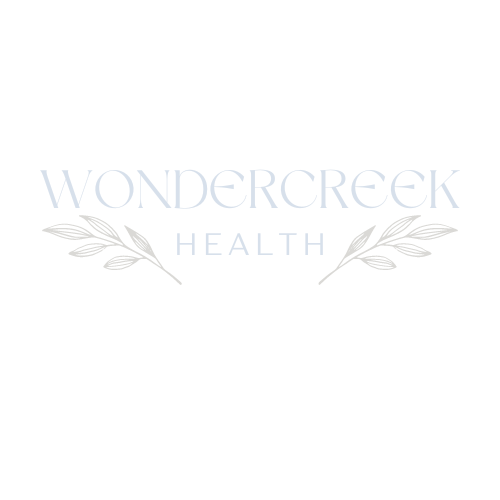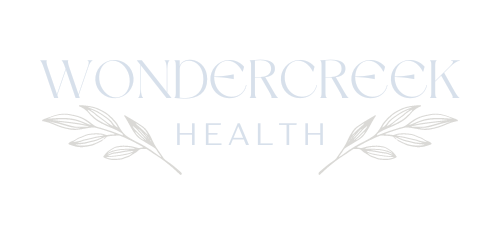Collagen in Midlife: Worth the Hype?
Anna Harrelson • June 12, 2025
What the science really says about collagen, aging, and whether you should be taking it.

If you’ve been wondering whether collagen is worth taking, you’re not alone. As a menopause & lifestyle medicine physician, I get this question every week—especially from women in their 30s, 40s, and 50s noticing changes in their skin, joints, nails, or hair.
So yes, I take it daily. And here’s what the science really says.
What Is Collagen?
Collagen is the most abundant protein in the body, acting as scaffolding in our skin, joints, bones, blood vessels, and connective tissues. With age—and particularly during perimenopause—collagen production naturally declines, and falling estrogen levels slow your body's ability to build it.
Evidence Spotlight:
Skin & Wrinkles
A 2023 meta-analysis of 26 randomized controlled trials (involving 1,721 people) concluded that hydrolyzed collagen significantly improves skin hydration and elasticity (p < 0.00001) (article).
An earlier randomized trial also reported a 7.5% increase in skin elasticity after 8 weeks of supplementation
(article).
Joint Pain & Function
In a 24-week randomized, double-blind placebo-controlled trial in athletes (n ≈ 97), daily collagen reduced multiple measures of joint pain at rest, walking, standing, carrying items, and lifting—with p-values as low as 0.001 (article).
A systematic review published just three months ago also confirmed that collagen improves joint pain and mobility, though evidence for bone density is less robust .
Collagen Synthesis & Recovery:
Emerging data suggest collagen peptides may boost markers of collagen synthesis (PINP) by 153% vs. 59% with placebo after resistance training, though more research is needed (article).
My Clinical Take
- I see collagen as a nutritional tool—not a cure-all:
- It supports skin structure, joint resilience, muscle recovery, and possibly even pelvic floor health.
- It’s safe, easy to take, and backed by solid evidence.
- Taken consistently over 8–12 weeks, with vitamin C and strength training, it adds up.
How To Take It Smartly
- Choose hydrolyzed collagen peptides (types I & III) from reputable sources.
- Take 2.5–15 g/day, depending on goals (skin vs. joint support).
- Add vitamin C to enhance collagen formation.
- Use it in coffee, smoothies, or tea—it's tasteless and heat-stable.
- Consistency > dose: it’s a daily habit, not a weekend cure.
What’s Not Proven
- Hair and nail benefits: evidence isn’t strong yet.
- Replacing healthy protein—don’t forget whole food nutrition.
- Miracle anti-aging: collagen helps, but it’s one part of a broader lifestyle puzzle.
Final Thoughts
Yes, collagen is worth it—but only as part of a bigger health strategy: hormones, exercise, sleep, nutrition, and metabolic balance.
You don’t have to chase youth. You just need to support your body so it can heal, repair, and stay resilient.
WonderCreek Health Blog

Many of the women who find their way to me share a common story: They’ve seen multiple specialists. Their labs are “normal.” Their symptoms are scattered across systems—joints, gut, mood, hormones, skin—and yet every provider focuses on one piece at a time, never the whole picture. They’ve often been told they’re anxious, dramatic, or “too sensitive.” And yet, they’re also some of the most intuitive, self-aware, and relentlessly curious patients I’ve ever met. They know their bodies. They know something isn’t right. And they won’t stop searching until someone finally sits down and helps them connect the dots. That’s where connective tissue disorders come in. What Do We Mean by “Connective Tissue Disorders”? When I talk about this group of conditions, I’m referring to women who often fall somewhere on the spectrum of: Hypermobility spectrum disorder (HSD) Ehlers-Danlos features Mast cell activation (MCAS) Endometriosis PMDD and other hormone sensitivities POTS or other dysautonomias The common thread? Their connective tissue is different—looser, more fragile, more reactive. And when the scaffolding of the body isn’t as stable, symptoms spill over into every system: joints, vessels, immune response, mood, hormones, digestion, even the brain. Why Midlife Feels Like a Breaking Point Estrogen has always been a stabilizer. It strengthens collagen, calms mast cells, and helps buffer the nervous system. So, it’s no surprise that perimenopause—when estrogen begins to fluctuate dramatically—can feel like the rug is being pulled out. I see women who: Once held things together with sheer willpower Managed PMDD, migraines, or endometriosis in their younger years Suddenly feel like everything has intensified: joint pain, bloating, histamine reactions, mood shifts, insomnia, brain fog For women with sensitive connective tissue and sensitive nervous systems, hormonal shifts don’t just cause hot flashes—they destabilize the entire body. Hormone Therapy for the Orchid Patient Many of my patients have tried hormones before. Sometimes birth control left them moody, swollen, or miserable. Sometimes a patch or pill was prescribed quickly, with no attention to how sensitive their system might be. So when they hear “hormone therapy,” they’re understandably hesitant. This is where my orchid theory comes in. Orchids are not weak flowers—they’re strong, beautiful, and resilient. But they need careful tending. They don’t thrive when thrown into the same soil or light as every other plant. They require patience, precision, and a slower hand. My connective tissue–sensitive patients are orchids. Their bodies respond to hormone therapy, but they need a methodical, gentle approach: Always bioidentical hormones Introduced slowly, step by step Carefully monitored, with adjustments made gradually Combined with lifestyle strategies to support the nervous system and reduce inflammation This is not a “one patch fits all” process. It’s a partnership. And when done thoughtfully, hormone therapy can bring profound relief and stability. Why Sensitivity Is a Strength The women I see are often neurodivergent—ADHD, autistic traits, or simply highly perceptive. They’re often told their sensitivity is a liability, but I see it differently. That very sensitivity is what helps them notice patterns others miss. It’s what fuels their curiosity to keep searching, even after being dismissed. Their intuition about their own bodies is spot on. Yes, their connective tissue is different. Yes, their mast cells fire more easily. Yes, their hormones seem to create more chaos. But these women are also some of the most resilient, resourceful, and insightful people I know. Moving Forward If you see yourself in this description, please know: You’re not “too sensitive.” You don’t have 27 different diagnoses—you have a pattern that makes sense. Hormones are not off the table for you—they may just need to be approached differently. Your lived experience matters as much as your lab results. This isn’t about fixing you—you are not broken. It’s about giving your body the tailored support it’s been asking for all along. This is just the beginning of a series I’ll be writing on connective tissue–related conditions: MCAS, PMDD, endometriosis, and more. Each deserves its own spotlight. But the first step is recognition. You deserve to be seen in your wholeness—not dismissed as “normal” when everything in your body is telling you otherwise.

You know how people say, "Just drink some water and take a magnesium supplement" like it’s the answer to everything? Well… they’re not totally wrong. But like most good advice, the devil is in the details. Magnesium is one of the most essential minerals in the body, involved in over 300 enzymatic reactions , yet it remains one of the most commonly overlooked deficiencies in midlife women. And no, your annual bloodwork probably didn’t catch it. So What Does Magnesium Actually Do? Think of magnesium as a multitasking background assistant—it keeps the lights on and the gears turning across nearly every body system: Brain & Mood: Regulates GABA and NMDA receptors, supporting calm, focus, and resilience against anxiety and overstimulation. Muscles: Prevents cramping and twitching, supports strength and recovery, and reduces restless legs. Sleep: Plays a role in melatonin production and nervous system regulation. Bowel Function: Helps pull water into the colon to prevent constipation. Cardiovascular Health: Regulates blood pressure and helps with vasodilation. Hormone Balance: Assists in estrogen metabolism and combats insulin resistance. In short: if you’re exhausted, bloated, moody, foggy, tense, or irregular in your gut or cycle—magnesium deserves a spot on your radar. Why Is Magnesium So Important in Midlife? Estrogen and progesterone both influence magnesium levels. As hormone levels decline or fluctuate during perimenopause and menopause, so does your ability to retain and utilize magnesium. Add to that: Chronic stress (which depletes magnesium) Modern diets (often low in magnesium-rich whole foods) Medications like PPIs, diuretics, or certain antibiotics High caffeine, sugar, or alcohol intake (all increase magnesium excretion) And suddenly, a " borderline magnesium issue " becomes a perfect storm. Why Your Blood Test Might Not Show It Serum magnesium tests only reflect ~1% of total body magnesium. Most magnesium is stored in bone and tissue. So it’s very possible to have "normal labs" and still be clinically deficient. In practice, we go by symptoms, risk factors, and therapeutic response. Common Signs of Suboptimal Magnesium Trouble falling or staying asleep Anxiety or nervous system overactivation Fatigue or burnout that doesn’t resolve with rest Muscle cramps, spasms, or eye twitches Constipation Menstrual migraines or tension headaches Joint stiffness or tightness Sugar cravings or blood sugar crashes Best Food Sources of Magnesium Magnesium-rich foods include: Dark leafy greens (spinach, chard) Nuts and seeds (especially pumpkin seeds and almonds) Avocados Legumes Dark chocolate (yes, really!) Whole grains like quinoa and oats That said, many of us still fall short even with a healthy diet, especially during high-stress seasons or if absorption is impaired. Supplements: Which Type of Magnesium Is Best? Not all magnesium is created equal. Here are the forms we most often recommend: Magnesium Glycinate: Best for sleep, anxiety, and muscle relaxation. Gentle on the stomach.** Magnesium Citrate: Useful for constipation, but can cause loose stools at higher doses. Magnesium Threonate: May support cognitive function and brain health. Magnesium Malate: Good for energy and muscle pain, often used in fibromyalgia. We generally avoid magnesium oxide unless constipation is the only concern, as it’s poorly absorbed. **Mag Glycinate is generally my go to recommendation and what we take at our house Also, BLENDS can be good- but generally more expensive Dosing & Timing Most women benefit from 200–400 mg daily, depending on needs. Take it in the evening if you're targeting sleep or relaxation. Divide doses if taking more than 300 mg (e.g. AM + PM). Always start low and go slow, especially with citrate forms to avoid urgent bathroom visits. Final Thoughts If magnesium had better marketing, it would be a top-tier wellness darling. But because it’s quiet, essential, and boring on paper, we tend to overlook it. Yet for so many midlife women, magnesium is the missing link that helps all the other systems and strategies finally click. So if you're doing "everything right" and still feel off? It might be time to start taking magnesium!

